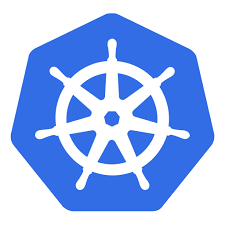Environment variables in Compose
Hai semuanya di materi kali ini kita akan membahas Environment variable khususnya dalam Compose file, diantaranya
- Set environtment variable in container
- The
.envfile - Operation System environment variables
- Using the
--env-fileoption - Pass environment variables to containers
- The
env_fileconfiguration option - Set environment variables with
docker-compose run
Ok langsung ja, kita ke pembahasan yang pertama yaitu
Set environtment variable in container
You can set environment variables in a service’s containers with the environment key, just like with docker run -e VARIABLE=VALUE ...:
The .env file
You can set default values for any environment variables referenced in the Compose file, or used to configure Compose, in an environment file named .env. The .env file path is as follows:
- Starting with
+v1.28,.envfile is placed at the base of the project directory - Project directory can be explicitly defined with the
--fileoption orCOMPOSE_FILEenvironment variable. Otherwise, it is the current working directory where the docker compose command is executed (+1.28). - For previous versions, it might have trouble resolving
.envfile with--fileorCOMPOSE_FILE. To work around it, it is recommended to use--project-directory, which overrides the path for the.envfile. This inconsistency is addressed in+v1.28by limiting the filepath to the project directory.
Contohnya kita buat file .env seperti berikut:
Dan berikut adalah file docker-compose.yaml seperti berikut:
When you run docker-compose up, the web service defined above uses the image nginx:1.12.1. You can verify this with the config command, which prints your resolved application config to the terminal:
➜ env-file docker-compose config
services:
web:
image: nginx:1.21.1
ports:
- published: 80
target: 80
version: '3.8'
Operation system environment variables
Selain menggunakan .env file, compose file juga listen dari OS Environtment variable, sebagai contoh kita masih menggunakan docker-compose.yaml sebelumnya yaitu:
Sekarang coba set env variable di OS dengan perintah seperti berikut:
For Bash script:
export NGINX_VERSION=latestFor Powershell script:
$Env:NGINX_VERSION="latest"Sekarang coba check dengan perintah seperti berikut docker-compose config, maka hasilnya seperti berikut:
## perintah berikut akan meng-override file `.env` file karena levelnya lebih tinggi
➜ env-file $Env:NGINX_VERSION="latest"
➜ env-file docker-compose config
services:
web:
image: nginx:latest
ports:
- published: 80
target: 80
version: '3.8'
# To remove Env NGINX_VERSION from Session
➜ env-file Remove-Item Env:NGINX_VERSION
here’s the priority used by Compose to choose which value to use:
- Compose file
- Shell environment variables
- Environment file
- Dockerfile
- Variable is not defined
Using the --env-file option
By passing the file as an argument, you can store it anywhere and name it appropriately, for example, .env.ci, .env.dev, .env.prod. Passing the file path is done using the --env-file option:
docker-compose -f .env.dev configJika di jalankan maka hasilnya seperti berikut:
## create copy file of `.env` to `.env.dev`
➜ env-file cp .env .env.dev
# the edit value in `.env.dev` file
➜ env-file sed -i 's|1.21.1|mainline|g' .env.dev
➜ env-file cat .env.dev
NGINX_VERSION=mainline
➜ env-file docker-compose --env-file .env.dev config
services:
web:
image: nginx:mainline
ports:
- published: 80
target: 80
version: '3.8'
Pass environment variables to containers
You can pass environment variables from your shell straight through to a service’s containers with the ‘environment’ key by not giving them a value, just like with docker run -e VARIABLE ...:
Buat file baru dengan nama .env seperti berikut:
Dan berikut adalah file docker-compose.yaml seperti berikut:
Jika kita coba validate maka hasilnya seperti berikut:
➜ pass-env cat .env
POSTGRES_PASSWORD=test_db
DB_USERNAME=test_db
POSTGRES_DB=test_db
➜ pass-env cat docker-compose.yaml
version: '3.8'
services:
db:
image: postgres:12.6
environment:
- POSTGRES_PASSWORD
- POSTGRES_USER=${DB_USERNAME}
- POSTGRES_DB
ports:
- 5432:5432
➜ pass-env docker-compose --env-file .env config
services:
db:
environment:
POSTGRES_DB: test_db
POSTGRES_PASSWORD: test_db
POSTGRES_USER: test_db
image: postgres:12.6
ports:
- published: 5432
target: 5432
version: '3.8'
The value of the POSTGRES_DB variable in the container is taken from the value for the same variable in the shell in which Compose is run.
The env_file configuration option
You can pass multiple environment variables from an external file through to a service’s containers with the env_file option, just like with docker run --env-file=FILE ...:
Buat file baru dengan nama database.dev.env seperti berikut:
Dan berikut adalah file docker-compose.yaml seperti berikut:
Jika kita coba validate maka hasilnya seperti berikut:
➜ env-file-option docker-compose config
services:
db:
environment:
POSTGRES_DB: hr_db
POSTGRES_PASSWORD: dev_db
POSTGRES_USER: dev_db
image: postgres:12.6
ports:
- published: 5432
target: 5432
version: '3.8'
Set environment variables with docker-compose run
Similar to docker run -e, you can set environment variables on a one-off container with docker-compose run -e:
Berikut adalah docker-compose.yaml template:
Kemudian coba jalan perintah berikut
docker-compose -f .\docker-compose.yaml run \
-e POSTGRES_DB=hr_db \
-e POSTGRES_USER=prod_db \
dbJika dijalankan maka hasilnya seperti berikut:
➜ docker-compose-run docker-compose -f .\docker-compose.yaml run `
>> -e POSTGRES_DB=hr_db `
>> -e POSTGRES_USER=prod_db `
>> -d db
Creating docker-compose-run_db_run ... done
docker-compose-run_db_run_bef93b57be79
➜ docker-compose-run docker-compose ps
Name Command State Ports
-----------------------------------------------------------------------------------------
docker-compose-run_db_run_bef93b57be79 docker-entrypoint.sh postgres Up 5432/tcp
➜ docker-compose-run docker container inspect docker-compose-run_db_run_bef93b57be79 -f '{{json .Config.Env}}' | python.exe -m json.tool
[
"POSTGRES_PASSWORD=hr_db",
"POSTGRES_DB=hr_db",
"POSTGRES_USER=prod_db",
"PGDATA=/var/lib/postgresql/data"
]
Yuk simak juga videonya,
Dan jika temen-temen belajar hal baru kali ini jangan lupa buat Like, Subcribe, dan Share ke temen kalian. Terimakasih!!!




